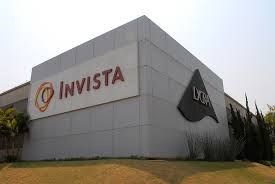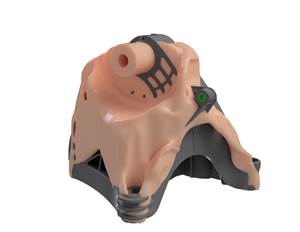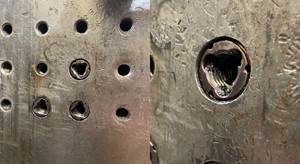Price Hikes On Nylon 66 and 6 Underway?
While price increases for nylon 66 are attributed to supply contraints, those for nylon 6 are linked to upward raw material costs.
Domestic price increases for nylons 66 and 6 emerged before mid-April, but driven by different factors. Supply constriction is the issue in the case of nylon 66, whereas nylon 6 suppliers attribute their increases on higher raw material costs. The timing and degree of implementation of these increases remains to be seen.
The supply issue for nylon 66 and its intermediates was brought on by a force majeure action by Invista—now ranked as one of the largest suppliers of nylon 66 resins and compounds in the world. The company reported a ‘chemical function issue’ at its Victoria, Texas facility as the reason for implementing supply allocations on nylon 66 as well as adiponitrile (ADN) and hexamethylene diamine (HMD) salts.
In its official statement the company noted that its representatives would be keeping its customers updated on amounts and rough estimates for timing of supply allocations. “We are working diligently to resolve the issue without compromising our relentless commitment to compliance, safety and the environment,” the statement said.
Industry experts concede that disruptions at any nylon 66 intermediate production facilities are likely to have a significant market impact because there are not many nylon 66 players, and all of the production facilities are on the larger scale. In our April issue’s Resin Pricing Analysis, Mark Kallman, v.p. of client services for engineering resins, PS, and PVC, at Resin Technologies, Inc. (RTi), described the nylon 66 market as a bit more balanced and not as competitive as nylon 6, which is more of a “commodity” resin. He also describes demand as fairly good, particularly in automotive, and expects to see an improvement over 2014.
Moreover, Kallman ventured the nylon 66 pricing trend to be flat-to-lower, as suppliers have continued to expand their profit margins due to lower feedstock costs. The unplanned Invista production issue may change this projection, at least for a time. So far, one supplier has announced a price increase--15ȼ/lb, effective May 1.
Meanwhile, a 7ȼ/lb price increase on nylon 6 has been issued by BASF--effective April 15, and by DSM--effective May 1, or as contracts allow. The latter cited increasing raw material prices as the reason for its action, and noted the following in its announcement, “While DSM continues to pursue and implement cost savings initiatives targeted at absorbing the impact of the raw material escalations, this additional increase is necessary to ensure DSM’s sustainable long-term position as leading supplier of engineering plastics.”
RTi’s Kallman estimates that nylon 6 prices have dropped around 5-10% from late third quarter 2014 through first quarter 2015, due to both a sharp drop in benzene prices and lower prices of other raw materials as well as ample capacity. He ventured that second-quarter pricing is likely to be flat to higher, driven by feedstock cost increases (e.g., the trajectory for benzene prices appears to be reversing), and some improvement in demand.
Want to find or compare materials data for different resins, grades, or suppliers? Check out Plastic Technology’s Plaspec Global materials database.

Related Content
Design Optimization Software Finds Weight-Saving Solutions Outside the Traditional Realm
Resin supplier Celanese turned to startup Rafinex and its Möbius software to optimize the design for an engine bracket, ultimately reducing weight by 25% while maintaining mechanical performance and function.
Read MorePEEK for Monolayer E-Motor Magnet Wire Insulation
Solvay’s KetaSpire KT-857 PEEK extrusion compound eliminates adhesion and sustainability constraints of conventional PEEK or enamel insulation processes.
Read MoreAutomotive Awards Highlight Emerging Technologies
Annual SPE Automotive event gives nods to several ‘firsts’ as well as sustainability.
Read MoreMolder Repairs Platen Holes with Threaded Inserts
Automotive molder ITW Deltar Fasteners found new life for the battered bolt holes on its machine platens with a solution that’s designed to last.
Read MoreRead Next
For PLASTICS' CEO Seaholm, NPE to Shine Light on Sustainability Successes
With advocacy, communication and sustainability as three main pillars, Seaholm leads a trade association to NPE that ‘is more active today than we have ever been.’
Read MorePeople 4.0 – How to Get Buy-In from Your Staff for Industry 4.0 Systems
Implementing a production monitoring system as the foundation of a ‘smart factory’ is about integrating people with new technology as much as it is about integrating machines and computers. Here are tips from a company that has gone through the process.
Read More
























